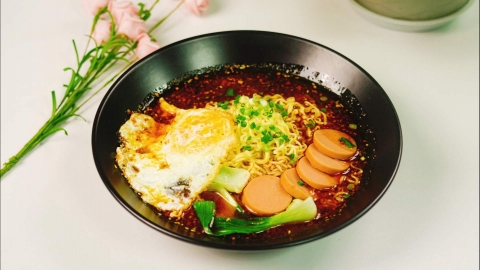Can milk tea and instant noodles be eaten together?
Milk tea and instant noodles can be consumed together in moderation, but it is important to control intake and maintain a balanced diet. The detailed explanation is as follows:

Instant noodles mainly consist of a noodle cake made from wheat flour, some vegetable oil, and dehydrated vegetables, providing certain amounts of protein and fat, and possibly some vitamins. Milk tea primarily contains milk, tea, sugar, jam, and other ingredients, providing protein, fat, sugar, and nutrients such as sodium, phosphorus, and potassium. From the perspective of nutritional components, milk tea and instant noodles do not cause adverse reactions nor do they interfere with each other's absorption.
However, both milk tea and instant noodles are high-calorie, high-fat foods. Excessive consumption may increase the gastrointestinal burden, leading to symptoms such as abdominal pain and bloating. Additionally, instant noodles may contain significant amounts of additives and preservatives, while milk tea usually contains high levels of sugar. Long-term excessive consumption may cause adverse effects on the body, such as obesity and elevated blood sugar levels.
Therefore, although milk tea and instant noodles can be consumed together in moderation, it is recommended to combine them with other foods reasonably to ensure balanced nutrition. It is advisable to consume more foods rich in high-quality protein and vitamins, such as eggs, apples, Chinese cabbage, and celery, to enhance immunity. At the same time, it is also important to control the intake of milk tea and instant noodles to avoid excessive consumption of calories and sodium.









